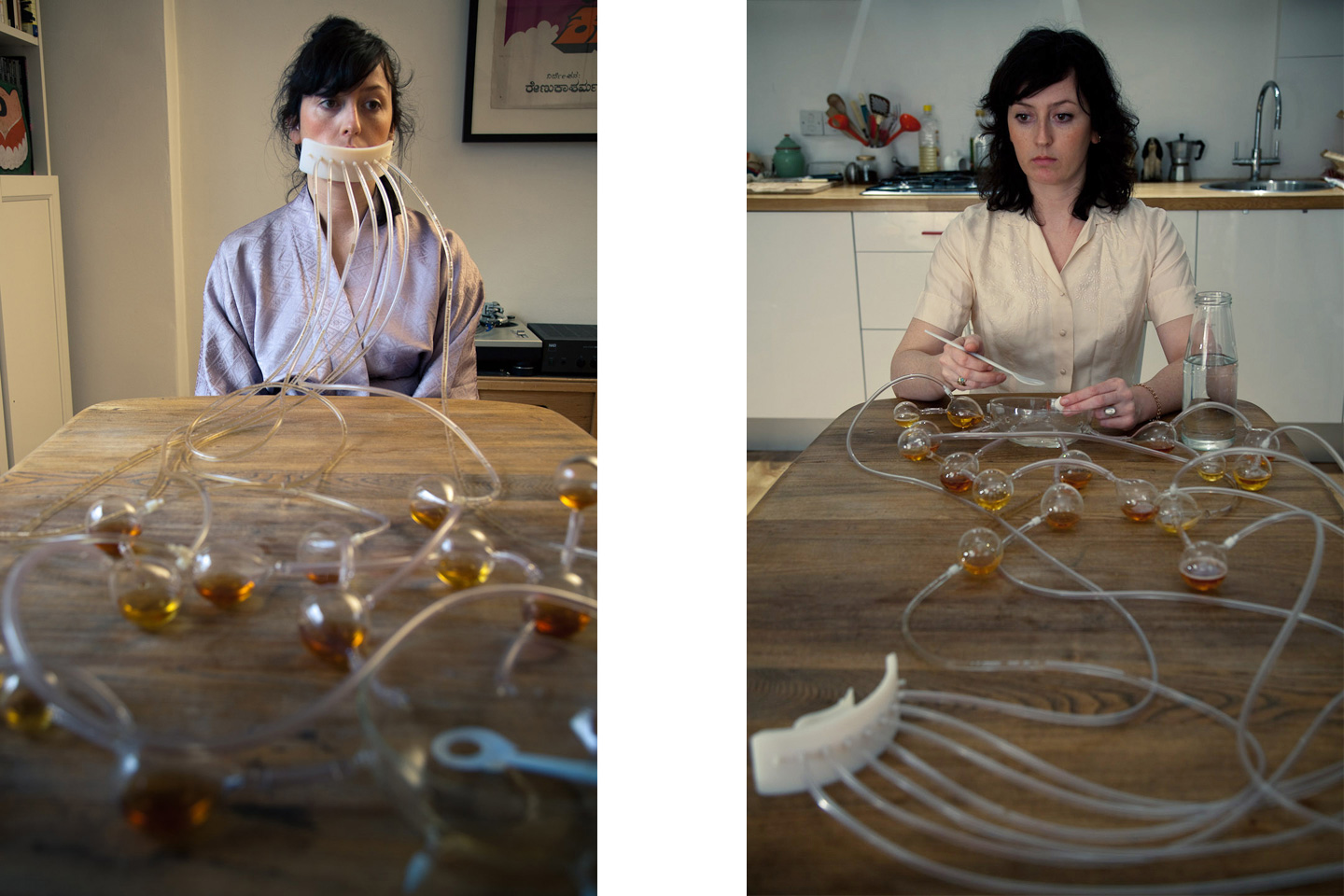Synthetic Biology’s potential to make healthcare more personal and participatory might turn us into our own doctors and pharmacists; constantly monitoring and tweaking our body.
It might even allow to externalise our immune system by outsourcing metabolic processes to external micro-organisms. These micro-organisms, for instance yeasts, sense and diagnose anomalies in our body to produce and deliver chemicals accordingly.
Such a Synthetic Immune System would be tailored to one’s genetic predisposition, age, lifestyle and therefore risk.
This synthetic immune system is a network of biosensors, made of yeast. Each vessel contains a different yeast, designed to monitor a specific anomaly for a specific person; helping break down lactose, caffeine or other ingredients, detecting vitamin deficits or diseases and producing chemicals or drugs accordingly.
The selection of biosensors is personal and relies on one’s genetic predisposition, lifestyle and fears.
The yeasts are fed with water and sugar from the central bowl. When using the spoon to stir the mixture, a drop of blood drips into the system to disclose your body’s state. Your synthetic immune system will need feeding every evening to produce for your needs overnight. Every morning, use the mouthpiece to take in the different remedies produced specifically for today.
// In collaboration with the Centre for Synthetic Biology and Innovation at Imperial College
// Commissioned by Impact! A Royal College of Art and EPSRC collaboration







